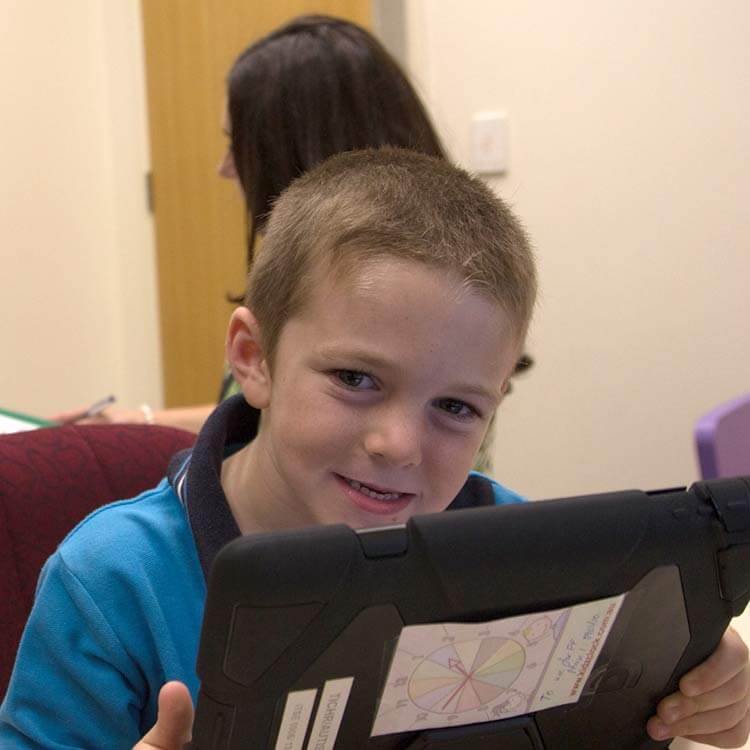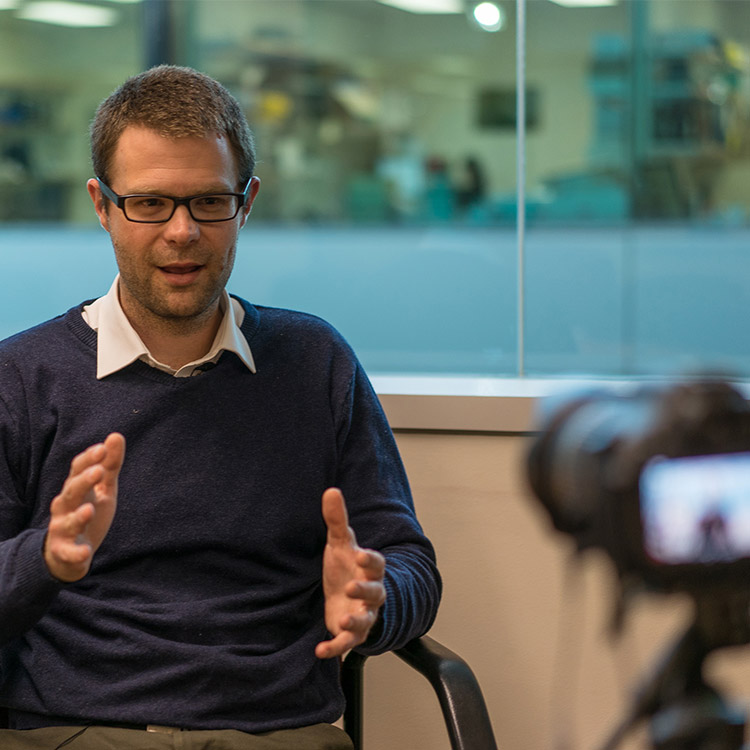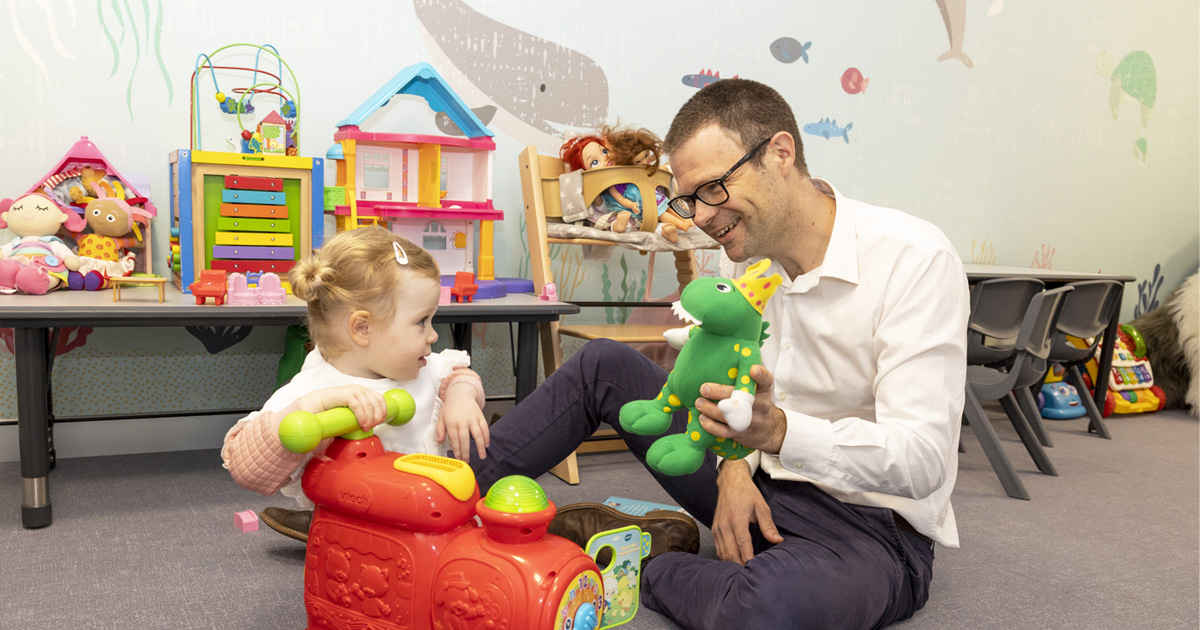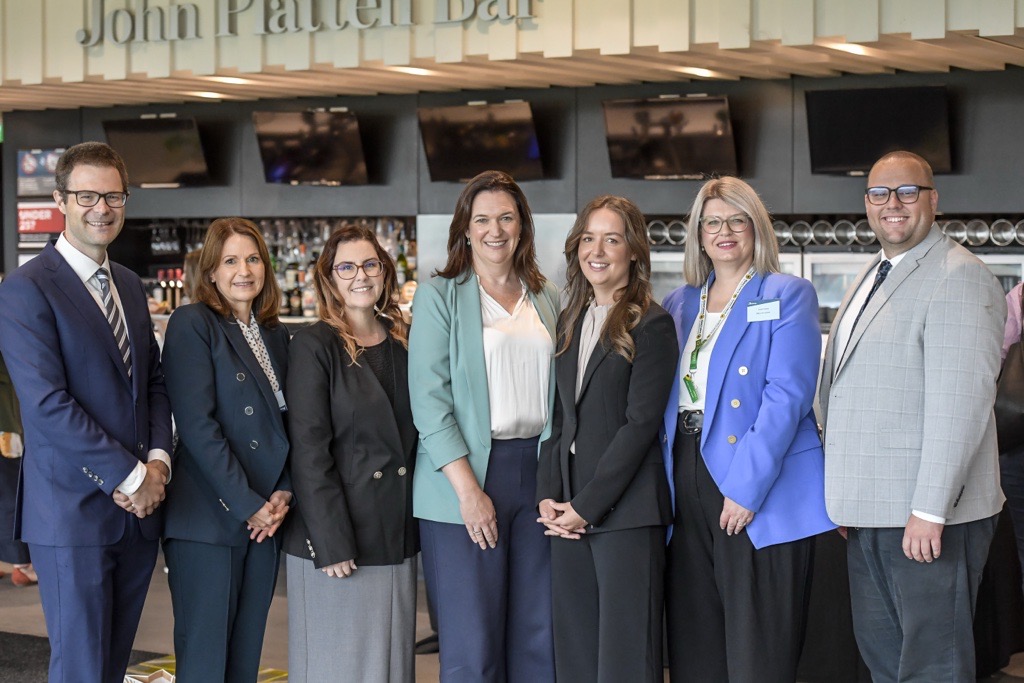Search
Research
WHO SARI & RSV Surveillance in AustraliaChristopher Blyth MBBS (Hons) DCH FRACP FRCPA PhD Centre Head, Wesfarmers Centre of Vaccines and Infectious Diseases; Co-Head, Infectious Diseases

News & Events
Australia’s first Autism Biobank to help improve early diagnosesA world leading Autism biobank has been officially launched in Australia today by the Minister for Health, the Hon Sussan Ley.

News & Events
The Kids researchers finalists in Premier’s Science AwardsThe Kids Research Institute Australia has two researchers and an innovative science engagement initiative as finalists in the 2017 Premier’s Science Awards.

News & Events
The Kids welcomes Federal Government’s commitment to early supportThe Kids Research Institute Australia welcomes today’s Federal Government announcement of a new pilot program to support babies showing early social communication differences in Western Australia.

News & Events
World-first Inklings Program launches in South AustraliaSouth Australian families with babies showing early social and communication differences will be among the first to benefit from a nation-leading early support program, as The Kids Research Institute Australia’s Inklings Program officially launches in South Australia.
Kaal is a proud Noongar boy, he loves playing football, but this season Kaal is about to tackle a new and unexpected challenge… eczema.
Research
Describing skin health and disease in urban-living Aboriginal children: co-design, development and feasibility testing of the Koolungar Moorditj Healthy Skin pilot projectIndigenous children in colonised nations experience high rates of health disparities linked to historical trauma resulting from displacement and dispossession, as well as ongoing systemic racism. Skin infections and their complications are one such health inequity, with the highest global burden described in remote-living Australian Aboriginal and/or Torres Strait Islander (hereafter respectfully referred to as Aboriginal) children. Yet despite increasing urbanisation, little is known about the skin infection burden for urban-living Aboriginal children.
Research
Psychosocial and neurocognitive correlates of suicidal thoughts and behaviours amongst siblings of persons with and without neurodevelopmental conditionsSiblings of individuals with neurodevelopmental conditions (NDCs) have greater incidence of neuropsychiatric diagnoses and neurocognitive difficulties compared to siblings of persons without NDCs. Despite suicidality being labelled a global health crisis (WHO, 2014) and NDC siblings experiencing risk factors implicated in suicidality, no previous studies examined suicidality amongst adolescent and young adult siblings of persons with NDCs. Our study aimed to bridge this gap.
Research
COVID-19 monitoring with sparse sampling of sewered and non-sewered wastewater in urban and rural communitiesEquitable SARS-CoV-2 surveillance in low-resource communities lacking centralized sewers is critical as wastewater-based epidemiology (WBE) progresses. However, large-scale studies on SARS-CoV-2 detection in wastewater from low-and middle-income countries is limited because of economic and technical reasons.
Research
Continuous glucose monitoring has an increasing role in pre-symptomatic type 1 diabetes: Advantages, limitations, and comparisons with laboratory-based testingType 1 diabetes is well-recognised as a continuum heralded by the development of islet autoantibodies, progression to islet autoimmunity causing beta cell destruction, culminating in insulin deficiency and clinical disease. Abnormalities of glucose homeostasis are known to exist well before the onset of typical symptoms.
